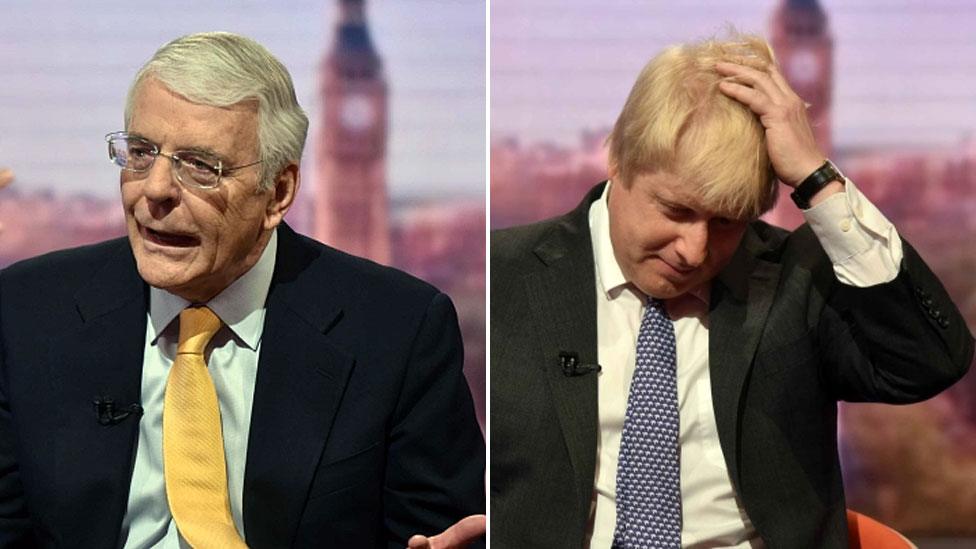EU referendum: Pants on fire!
- Published

For voters who are only just tuning into the EU referendum debate they might take one look and tune out again.
What they might see this morning - one side accusing the other of being a bunch of liars who you wouldn't trust to feed your cat, the other side claiming the others include bitter has-beens and a load of sneering patricians telling you they know best.
Political debate that, in some moments, isn't much more sophisticated than a bunch of school kids shouting "pants on fire" at each other in the playground.
Given this is one of the biggest choices we have made as a country for generations - I know that sounds trite but it is true - it's not exactly edifying to watch, and as happened during the wilder days of the Scottish referendum, this campaign is dabbling in a world where the truth is not a safe anchor.
As the Treasury Select Committee pointed out in different ways both sides have been casual, or at least, selective with the facts.
But why? There are plenty of reasons why it has become so bad. Long-held grudges, long-term ambitions, mixed with the short-term frenzy of a campaign - politicians have always been tempted to do just about anything to win and this generation are no different.
When it comes though to the furious rows over statistics that are becoming one of the familiar features of the battle there might be something different going on.
When the Leave campaign first unveiled its hotly-disputed claim that we "send" £350m a week to the EU, which as we have reported is not quite the full story, the Remain side were quick to call foul. But as senior sources on the Leave side told me, complaints suited them down to the ground.
That might sound strange, but public awareness of the EU, what it costs and how it works, is quite understandably low.
For political nerds (like me) the row about the £350m suggested that the Out campaign were willing to be, shall we say, "broadbrush" in the way they used statistics.
But an almighty row over the number would for many voters just seek to highlight the fact that we do pay a lot of money to the EU, more than we get back.
As Leave again publishes a group of numbers that don't quite stack up about future EU bailouts, it's worth bearing that in mind. It's a tried and tested strategy in politics - if you want to make a point - make a row.
Today, almost as soon as they put the figures out, as night follows day, the howls of protest followed.
The question in the months to come is if the referendum rows have got so bad they have destroyed voters' faith (even further) in the politicians involved.
For explanations of why today's claims don't stack up click here.